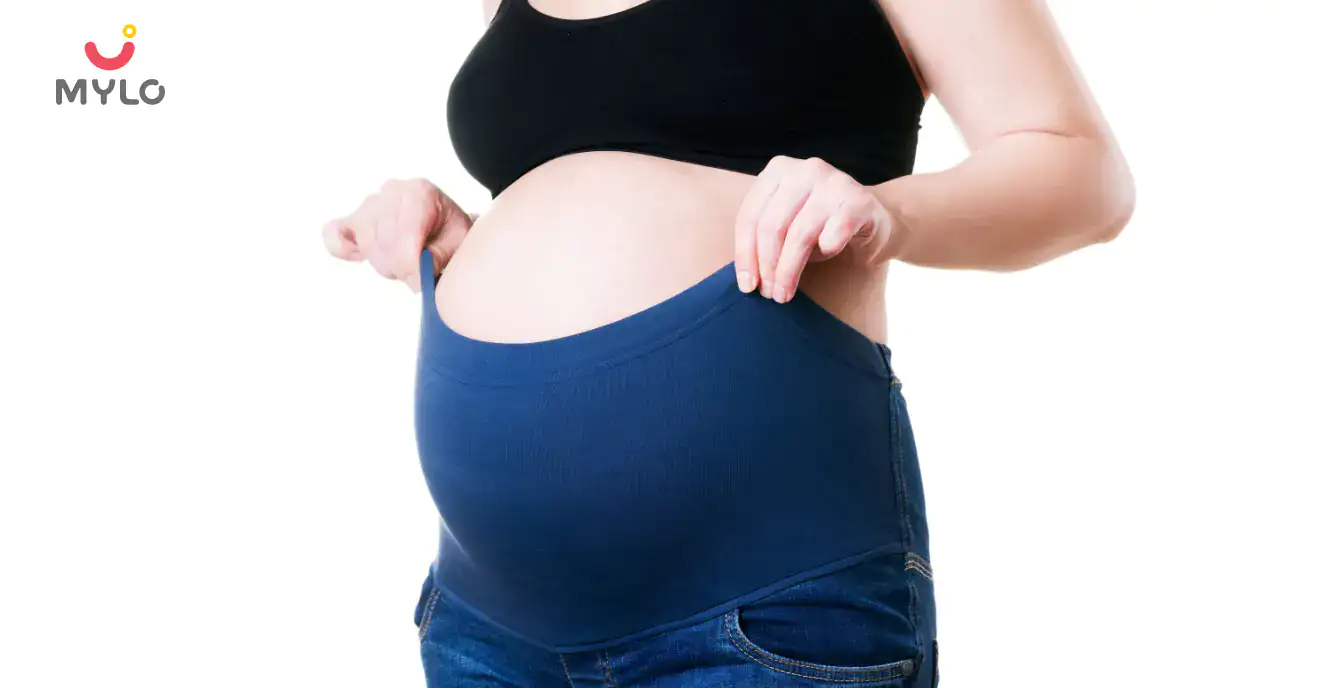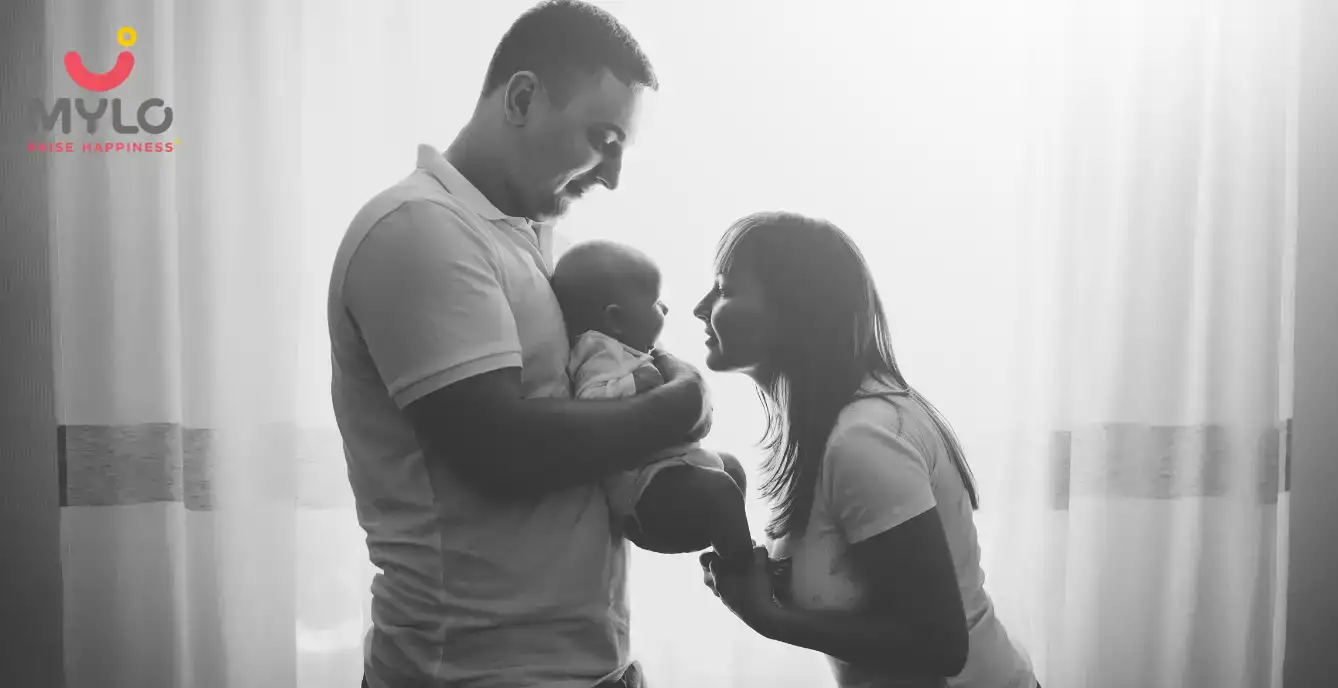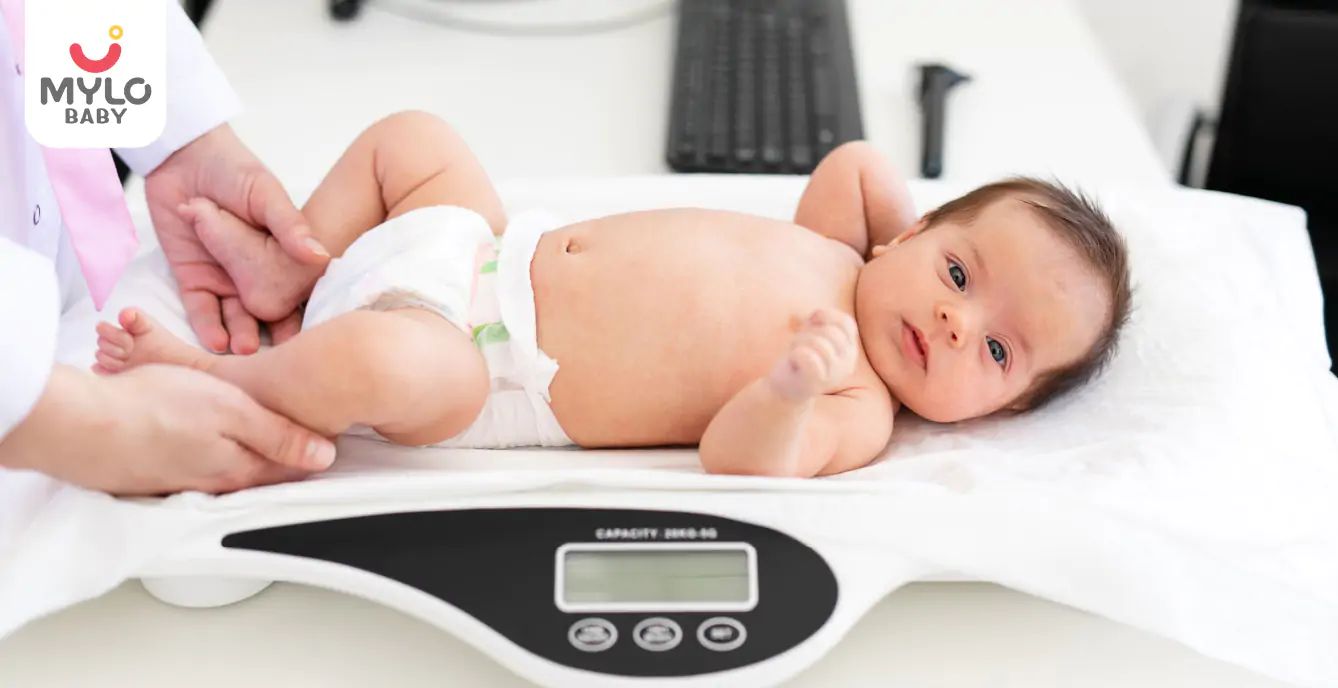Home

Care for Baby

Baby Vomiting After Feeding: Understanding the Causes and Solutions for Upset Stomach
In this Article

Care for Baby
Baby Vomiting After Feeding: Understanding the Causes and Solutions for Upset Stomach
Updated on 7 July 2023
From the first precious smile to the adorable little giggles, every milestone in your baby's life is a cause for celebration. But let's be honest, there are also those less glamorous moments that come with the territory. One such moment is when you notice your baby vomiting after feeding.
As a parent, it's only natural to be concerned when your baby experiences an upset stomach. You want to understand what's causing it and, more importantly, how to alleviate their discomfort. That's why we're here to shed some light on the matter.
In this article, we'll delve into the causes behind baby vomiting and learn how to avoid baby vomiting after feeding. So, take a deep breath, and let's dive in!
What are the Causes of Baby Vomiting After Breastfeeding?
Breastfeeding is a natural and essential way to nourish a baby. However, it is not uncommon for babies to experience vomiting after breastfeeding. There can be several causes for this, and understanding them can help parents find appropriate solutions.
1. Overfeeding
If a baby is fed more milk than their stomach can handle, it can lead to vomiting. This can happen if the baby is nursed for too long or if they are given too much milk in a bottle.
2. Improper latching
If a baby is not properly latched onto the breast, they may swallow excessive air while nursing, which can lead to discomfort and vomiting.
3. Infant reflux
Some babies have a condition called gastroesophageal reflux (GER), where the contents of the stomach flow back up into the esophagus. This can cause vomiting, especially after feedings.
4. Food intolerance or allergy
Some babies may have an intolerance or allergy to certain foods, such as cow's milk protein, that can cause vomiting. This is more common in formula-fed babies, but can also occur in breastfed babies if the mother consumes allergenic foods.
5. Infection or illness
In some cases, vomiting in babies can be a symptom of an infection or illness, such as a stomach virus or gastrointestinal infection. This is usually accompanied by other symptoms like fever or diarrhea.
What are the Causes of Baby Vomiting After Feeding Formula?
While breastfeeding is the preferred method of feeding for newborns, some parents choose to feed their babies formula. Just like with breastfeeding, it is not uncommon for babies to experience vomiting after being fed formula. There are a few common causes for this, and understanding them can help parents address the issue.
1. Overfeeding
Feeding a baby more formula than their stomach can comfortably hold can lead to vomiting. It's important to follow the recommended feeding guidelines and pay attention to your baby's cues of fullness.
2. Improper Burping
If a baby isn't burped properly after feeding, air bubbles can build up in their stomach, causing discomfort and leading to vomiting. Making sure to burp your baby frequently during and after feedings can help prevent this.
3. Formula Intolerance or Allergy
Some babies may have an intolerance or allergy to certain ingredients in formula. This can cause digestive issues, including vomiting. If you suspect your baby has an intolerance or allergy, consult with a healthcare professional to explore alternative formulas or feeding options.
4. Gastroesophageal Reflux (GER)
GER occurs when stomach acid flows back into the esophagus. It's a common condition in infants and can cause spitting up or vomiting. If your baby shows signs of GER, such as frequent vomiting, irritability, or difficulty gaining weight, consult with your pediatrician for guidance and potential treatment options.
5. Stomach Bug or Gastroenteritis
Sometimes, babies can develop a stomach bug or gastroenteritis, which can cause vomiting along with other symptoms like diarrhea and fever. If your baby exhibits signs of illness or if the vomiting persists despite other interventions, it's important to seek medical advice.
It's important to note that baby vomiting after feeding occasionally is considered normal, but if the vomiting is frequent, forceful, or accompanied by other concerning symptoms, it's best to consult a healthcare professional for proper evaluation and guidance.
Baby Vomiting Curdled Milk: Is It Normal?
Parents may sometimes notice that their baby vomits curdled milk, which can be concerning. However, in most cases, this is completely normal and not a cause for alarm. When milk is vomited, it mixes with stomach acid, which can cause it to curdle and appear chunky. This curdling is a natural process and does not necessarily indicate any underlying health issues.
Baby vomiting curdled milk can occur due to a variety of reasons. It can happen when the baby has consumed more milk than their stomach can hold, leading to regurgitation. It can also occur when the baby spits up milk that has been in their stomach for some time, causing it to curdle. As long as the baby is otherwise healthy, gaining weight appropriately, and not showing any signs of distress, curdled milk vomit is generally considered normal.
If you are concerned about your baby vomiting after breastfeeding or formula feeding, it is always a good idea to consult with a pediatrician. They can assess your baby's overall health and provide personalized advice based on their specific needs.
When to See Doctor for Baby Vomiting After Feeding
While occasional vomiting is common in babies, there are certain situations when it is important to seek medical attention. If your baby exhibits any of the following signs or symptoms, it is recommended to consult with a healthcare professional:
- Vomiting bile or greenish fluid
- Vomiting blood or material that looks like coffee grounds
- Persistent or forceful vomiting
- Refusing to eat or drink
- Signs of dehydration, such as dry mouth or decreased urine output
- High fever or signs of infection
These symptoms could indicate an underlying medical condition that requires prompt attention. It is always better to err on the side of caution and seek medical advice if you have any concerns about your baby's vomiting.
How to Avoid Baby Vomiting After Feeding?
Preventing or minimizing baby vomiting after feeding can help parents and babies have a more comfortable and enjoyable feeding experience. Here are seven tips to help avoid baby vomiting:
1. Feed in an upright position
Keeping the baby in an upright position during and after feedings can help prevent milk from flowing back into the esophagus. This can be achieved by holding the baby at a slight angle or using a nursing pillow to support them.
2. Burp the baby
Gently burping the baby during and after feedings can help release any trapped air and reduce the chances of vomiting. It is recommended to burp the baby every 2-3 ounces of milk or after switching breasts during breastfeeding.
3. Pace the feeding
Whether breastfeeding or bottle-feeding, it is important to allow the baby to feed at their own pace. This can help prevent overfeeding and reduce the likelihood of vomiting.
4. Avoid overfeeding
Pay attention to your baby's hunger cues and avoid overfeeding. Overfeeding can overwhelm the baby's digestive system and lead to regurgitation.
5. Check feeding position and latch
For breastfeeding, ensuring a proper latch and positioning can help prevent excessive air intake and reduce the chances of vomiting. Consult with a lactation specialist if you are experiencing difficulties.
6. Consider smaller, more frequent feedings
If your baby tends to vomit after large feedings, try offering smaller, more frequent feedings. This can help the baby digest the milk more easily.
7. Address potential food allergies or sensitivities
If you suspect that your baby's vomiting is related to a food allergy or sensitivity, consult with a pediatrician. They can provide guidance on appropriate dietary changes, such as eliminating certain foods from your diet if you are breastfeeding or switching to a different formula.
FAQs
Is vomiting normal in breastfed babies?
Occasional vomiting is considered normal in breastfed babies, especially if they have consumed more milk than their stomach can handle. However, if the vomiting is persistent, forceful, or accompanied by other concerning symptoms, it is recommended to consult with a healthcare professional.
Should you feed baby again after vomiting?
If your baby vomits, it is generally recommended to wait for some time before offering another feeding. This allows the baby's stomach to settle and reduces the chances of further vomiting.
When should I worry about baby vomiting?
While occasional vomiting is common in babies, there are certain signs that indicate the need for medical attention. If your baby is vomiting bile or greenish fluid, vomiting blood, refusing to eat or drink, or showing signs of dehydration or infection, it is important to seek medical advice.
Key Takeaways
Baby vomiting after feeding can have various causes, including overfeeding, food allergies or sensitivities, reflux, or an underlying medical condition. Understanding the specific cause of baby vomiting can help parents find appropriate solutions and manage the issue effectively. Following certain strategies, such as feeding in an upright position, burping the baby, pacing the feeding, and addressing potential food allergies or sensitivities, can help minimize baby vomiting. Trust your instincts as a parent and seek help when needed.
References
1. Whinney J, Paul SP, Candy DC. (2013). Clinical update: vomiting in infants. Community Pract.
2. Indrio F, Riezzo G, Raimondi F, Cavallo L, Francavilla R. (2009). Regurgitation in healthy and non healthy infants. Ital J Pediatr.
3. Duca AP, Dantas RO, Rodrigues AA, Sawamura R. (2008). Evaluation of swallowing in children with vomiting after feeding. Dysphagia.



Written by
Ravish Goyal
Official account of Mylo Editor
Read MoreGet baby's diet chart, and growth tips

Related Articles
Related Questions
Influenza and boostrix injection kisiko laga hai kya 8 month pregnancy me and q lagta hai ye plz reply me

Hai.... My last period was in feb 24. I tested in 40 th day morning 3:30 .. That is faint line .. I conculed mylo thz app also.... And I asked tha dr wait for 3 to 5 days ... Im also waiting ... Then I test today 4:15 test is sooooo faint ... And I feel in ma body no pregnancy symptoms. What can I do .

Baby kicks KB Marta hai Plz tell mi

PCOD kya hota hai

How to detect pcos

Related Topics
RECENTLY PUBLISHED ARTICLES
our most recent articles

Maternity Fashion
Why do you need to wear a high waisted panty during pregnancy?

IVF Pregnancy
Top 5 Precautions You Should Take After Getting an IVF Treatment

Baby Movements
Baby Kicking During Pregnancy: Unveiling the Wonders of Quickening in Pregnancy

General Father
Daddy duties: Here's your guide to fatherhood

Milestones
Four-weeks old baby: Health, growth, care and more

Mylo Cloth Diapers
Baby cloth diapers by Mylo
- When to begin toilet training your child
- Are you a first time dad & scared? Here's some help
- Is your baby 3 months old now? Here's how to set-up a perfect sleep and feeding schedule for your little one?
- Painful Nipples During Breastfeeding: A Step-by-Step Approach for Managing Discomfort
- How to Manage and Alleviate Round Ligament Pain During Pregnancy?
- FSH LH Prolactin Test: What This Group of Tests Can Tell You About Your Fertility
- Why Berbitol is the Missing Piece in Your Supplement Stack
- Top 10 Action Movies to Watch on Netflix in 2023
- Foods to Avoid After Embryo Transfer & Other Precautions to Boost Your Chances
- Semen Analysis: A Comprehensive Look at Male Reproductive Health
- Understanding Premature Ejaculation: Causes, Symptoms, and Treatment Options
- Gokshura: The Ancient Ayurvedic Remedy for Optimal Sexual Health and Wellness
- Retrograde Ejaculation: Unraveling the Mystery Behind This Uncommon Sexual Dysfunction
- Fertisure F: The Key to Unlocking Your Fertility Potential & Chances of Conception


AWARDS AND RECOGNITION

Mylo wins Forbes D2C Disruptor award

Mylo wins The Economic Times Promising Brands 2022
AS SEEN IN

- Mylo Care: Effective and science-backed personal care and wellness solutions for a joyful you.
- Mylo Baby: Science-backed, gentle and effective personal care & hygiene range for your little one.
- Mylo Community: Trusted and empathetic community of 10mn+ parents and experts.
Product Categories
baby carrier | baby soap | baby wipes | stretch marks cream | baby cream | baby shampoo | baby massage oil | baby hair oil | stretch marks oil | baby body wash | baby powder | baby lotion | diaper rash cream | newborn diapers | teether | baby kajal | baby diapers | cloth diapers |




